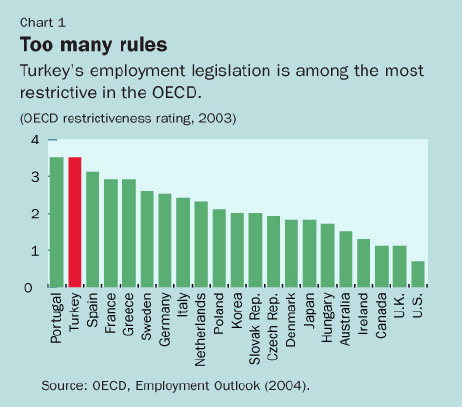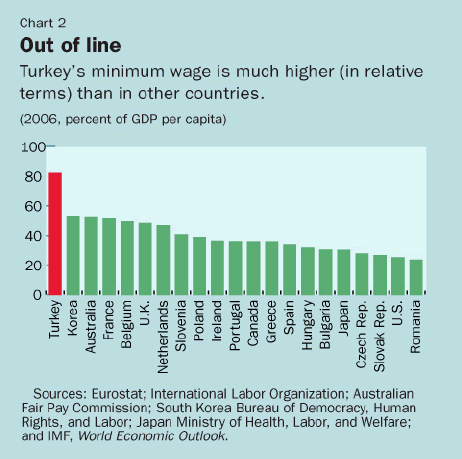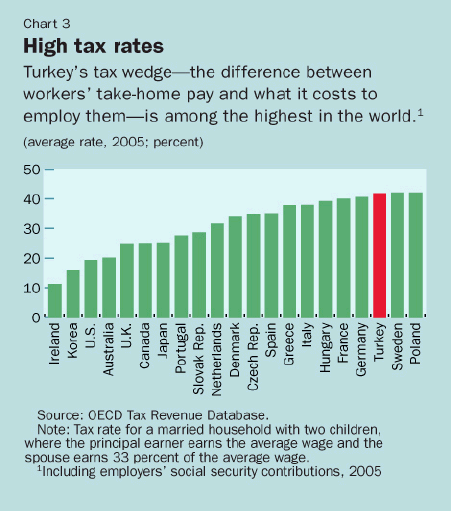
Typical street scene in Santa Ana, El Salvador. (Photo: iStock)
IMF Survey: Unlocking Turkey's Labor Potential
July 26, 2007
- Reforming the labor market is key to Turkey's long-term economic prosperity
- Turkey has among highest labor taxes and tightest regulations in OECD
- Reforms should maintain essential protection for workers
Turkey has some of the highest labor taxes and tightest regulations among members of the Organization for Economic Cooperation and Development (see Chart 1).

Workers installing a section of the Baku-Tbilisi-Ceyhan (BTC) oil pipeline: labor legislation needs reform (photo: Abaca Press).
Taxes and Employment
This has resulted in high unemployment (10 percent), low labor force participation (48 percent), and a large informal sector (employing about one-half of all workers).

The large informal sector eats into tax revenue. It also lowers productivity by preventing companies from taking full advantage of economies of scale (informal firms must remain small to avoid detection) and by restricting their access to capital and suppliers (formal sector businesses are reluctant to engage informal ones).
The following steps could help unlock Turkey's labor potential while maintaining essential protections for workers:
• Liberalize tight restrictions on temporary employment
• Avoid further large increases in the minimum wage and introduce regional differentiations (Turkey's current minimum wage is one of the highest in the world relative to average income—see Chart 2—exceeding 150 percent of regional per capita income in the poorer regions)

• Ease hiring requirements (for example, businesses with more than 50 employees are currently required to hire a certain number of lawyers)
• Lower severance pay requirements (currently the highest in the OECD) while making it easier for laid-off workers to qualify for unemployment benefits
• Narrow the tax wedge on labor while making sure that lost revenue in this area is compensated for by savings in other areas (see Chart 3).



